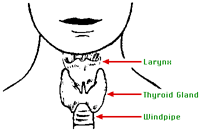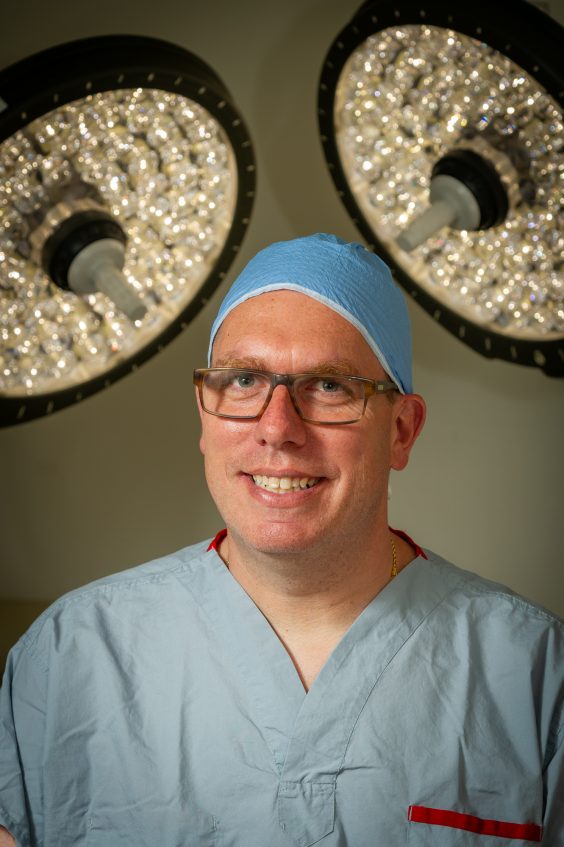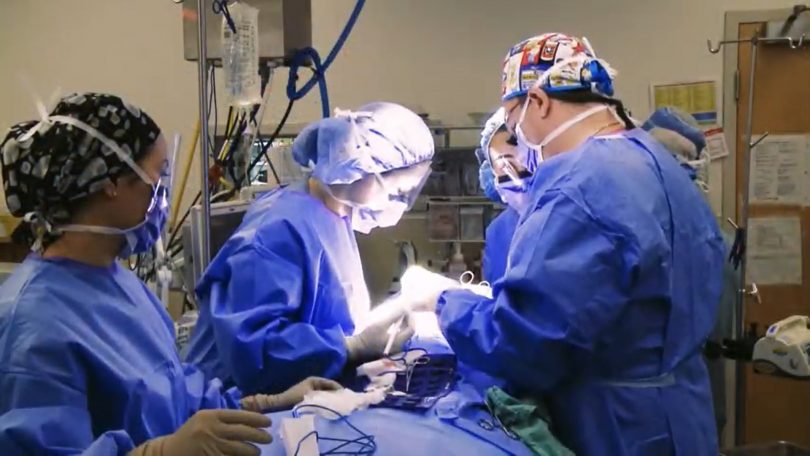June is Thyroid Awareness Month in Canada. Why is it important to nationally recognize thyroid disease in Canada? It is believed that half of those people affected with a thyroid condition will go undiagnosed. Recent studies indicate that thyroid disorders affect one in 10 people in Canada and, for reasons that are not fully understood, are five to seven times more common in women.
Thyroid disease and thyroid cancer can take many forms with treatments readily available once diagnosed, but a delay in diagnosis can create cascading health problems over time. The thyroid gland helps to regulate the body’s metabolism by producing thyroid hormone. When the thyroid gland functions abnormally it may be over-producing or under-producing its hormone, causing a thyroid imbalance referred to as hyperthyroidism and hypothyroidism, respectively.

Vigilance leads to early diagnosis and intervention – Check Your Neck!
“Check your Neck” is a refrain heard from physicians who take care of people with thyroid disorders. Important issues to be aware of are lumps in the neck, which may arise from the thyroid itself (nodules) or enlarged adjacent lymph nodes. While most thyroid nodules are not cancer, risk factors for thyroid cancer include a family history of thyroid cancer and radiation exposure of the neck when young, most commonly due to treatment of childhood cancers.
Hypothyroidism symptoms can range from fatigue, weight gain and sensitivity to cold, to painful stiff joints. In hyperthyroidism some of the symptoms may be: rapid heartbeat (tachycardia), irregular heartbeat (arrhythmia), increased appetite, anxiety and irritability, a fine tremor in hands and fingers and sweating. Hyperthyroidism needs treatment that will block the effects of excess thyroid hormone, while hypothyroidism needs thyroid hormone replacement.

Dr. Sam Wiseman, thyroid surgeon and researcher at St. Paul’s Hospital is a leading specialist in the surgical management of thyroid disorders and thyroid cancer. A member of the surgical staff at St. Paul’s Hospital since 2003, he has seen remarkable and transformative treatments for thyroid disease evolve during his medical practice. As a researcher, he has authored more than 160 publications, edited textbooks and is globally renowned as an expert in the surgical treatment of thyroid disorders and cancers.
He was led to a career in medicine following his parents’ professional career paths; his father, a pediatric surgeon, and his mother, a journalist, author and teacher, were the catalysts for his curiosity in science and eventually medicine. Enjoying the complex technical challenges that surgery presents, along with the inquisitiveness of research and discovery, Dr. Wiseman is strongly guided by his motivation to understand a patient’s diagnosis, treat their disease, and positively impact their lives, creating an invaluable triad of learning, implementation and care.
Utilizing ultrasound as a diagnostic tool has reduced the number of biopsies and reduction in surgeries
When asked about advances in treatment of thyroid disease and cancer, Dr. Wiseman identified that pre-operative management has undergone a major shift, with the adoption of systems that improve communication between the different clinicians who are involved in the care of people with thyroid disease. Using universal approaches such as the American College of Radiology TI-RADS system, used by radiologists at St. Paul’s for standardized reporting of thyroid ultrasound, and the Bethesda System for Reporting Thyroid Cytopathology used by pathologists for reporting thyroid cytology (results of needle biopsies), the consistency and quality of patient care has become greatly improved. These new approaches guide the management of thyroid nodules indicating which nodules warrant biopsy, which need to be watched, and help even determine which nodules warrant surgery. Both systems have really become invaluable in the management of thyroid disease. These systems have helped reduce the need for diagnostic thyroid biopsies and even operations, allowing for better tailoring and streamlining the care of patients.
Dr. Wiseman further identified how treatment of thyroid cancer has changed from a one size, or operation, fits all approach to a more shared decision-making approach with the patient themselves helping to guide their own treatment. Ten years ago, he explained, it was considered essential to remove the entire thyroid gland if cancer was present. We now recognize that not all patients require a total thyroidectomy, and for some people removal of only half the gland may be sufficient.
People being treated at St. Paul’s Hospital for thyroid disease or cancer receive highly specialized state-of-the-art care with outcomes that are excellent. The endocrine team at St. Paul’s according to Dr. Wiseman, “are a multidisciplinary team of experts that at every level of care, you see specialists that are engaged, focused and looking for the right solutions for each and every patient. It’s a real privilege to work with such a fine team of experts including my colleague, Dr. Adrienne Melck.”
During this awareness month, it’s critically important to highlight that early diagnosis and treatment can help people achieve better outcomes, which eventually translates to a healthier and happier quality of life.





